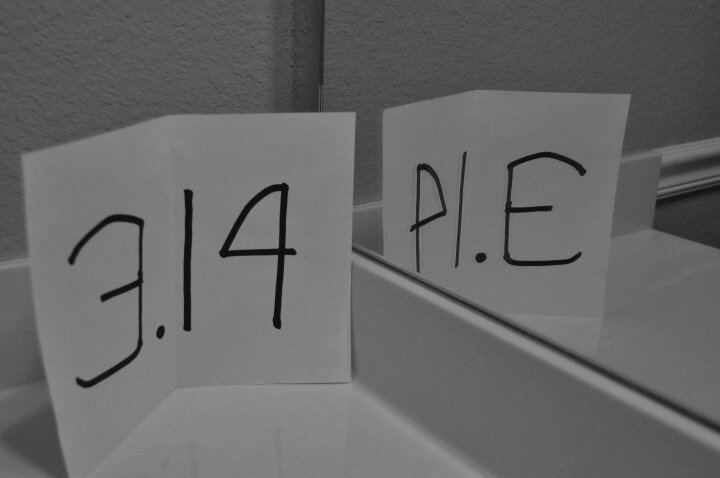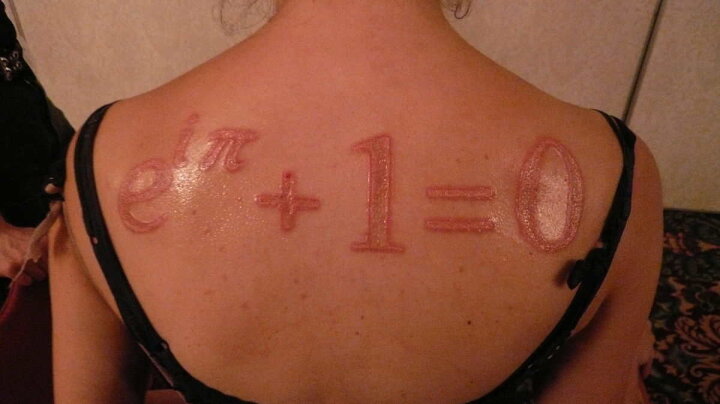It's π Day! It's π Day! Yeaaahhhh!!! 🥳
(I resurrected this older post...)
Happy birthday π !
Today (3/14) is π day.
(1) π is equal to the ratio of the circumference of a circle and its diameter.
(2) π is a transcendental number. Briefly, this means that we do not know its value, and we never will, haha. π, you’ll always be a mystery.
(3) π is (almost certainly) a normal number: the distribution probability of digits within π is random. If we assign a pair of consecutive digits to a character (such as "65"="A", cf. ASCII code table) we will find the contents of each book that has ever been written (even bad books, those behind the front row on our shelves) somewhere along the digits of π, and also any book that has not been written, and all variations thereof. There will be a version of Hamlet where Ophelia is called Helen, and one where Hamlet had killed the King himself.
(4) π is more fundamental than the physical constants. If the universe did not exist, the physical constants would loose their meaning, but π would remain the same, indicating that spirit is more fundamental than matter. We, as humans, can change a lot of things, but we can’t change π. Even God cannot change π, sorry Sir, You may have created the world but You did not create π. It’s always been there. And, no offense, o Lord, but you don't know the value of π either.
(5) π is considered to be one of the five fundamental numbers: i, e, π, 1, and 0. These numbers appear in the beautiful equation e^(i*π) + 1 = 0 (Gauss? Euler? Don’t remember.)
Happy birthday π!
You’re one of a kind, and we are big fans!
We love you π !
Happy birthday π !
Today (3/14) is π day.
(1) π is equal to the ratio of the circumference of a circle and its diameter.
(2) π is a transcendental number. Briefly, this means that we do not know its value, and we never will, haha. π, you’ll always be a mystery.
(3) π is (almost certainly) a normal number: the distribution probability of digits within π is random. If we assign a pair of consecutive digits to a character (such as "65"="A", cf. ASCII code table) we will find the contents of each book that has ever been written (even bad books, those behind the front row on our shelves) somewhere along the digits of π, and also any book that has not been written, and all variations thereof. There will be a version of Hamlet where Ophelia is called Helen, and one where Hamlet had killed the King himself.
(4) π is more fundamental than the physical constants. If the universe did not exist, the physical constants would loose their meaning, but π would remain the same, indicating that spirit is more fundamental than matter. We, as humans, can change a lot of things, but we can’t change π. Even God cannot change π, sorry Sir, You may have created the world but You did not create π. It’s always been there. And, no offense, o Lord, but you don't know the value of π either.
(5) π is considered to be one of the five fundamental numbers: i, e, π, 1, and 0. These numbers appear in the beautiful equation e^(i*π) + 1 = 0 (Gauss? Euler? Don’t remember.)
Happy birthday π!
You’re one of a kind, and we are big fans!
We love you π !























